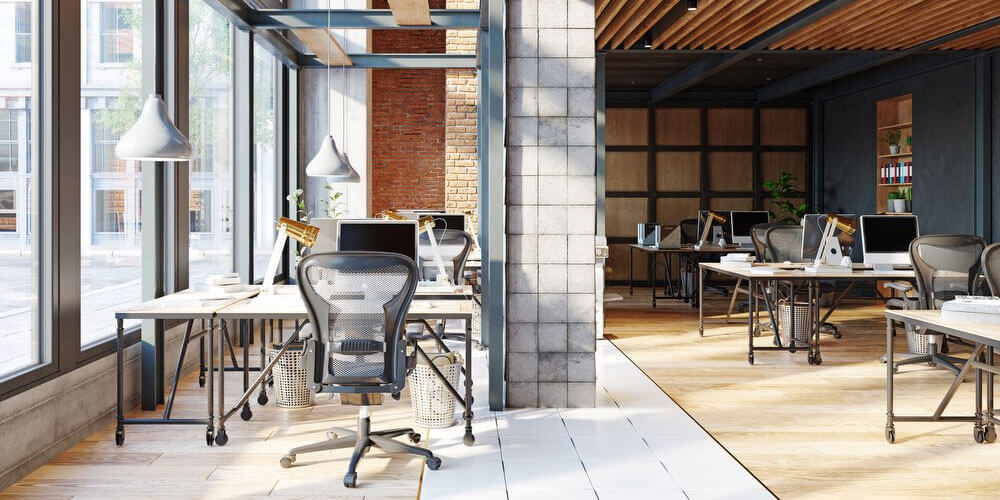As I sit in my backyard working on my laptop, I have been reflecting on the future of the office. For so many of us, the office has been our primary workplace since college. I think of it now as the place where we huddled to share ideas, high-fived successes and came together for team celebrations. Now, in the wake of the coronavirus, will it ever be the same?
I must admit, I was initially surprised by how productive I have been at my “Work From Home” (WFH) office, where I have the fortunate timing of a recent remodel. My home office is separate from the house and out of earshot of the kid’s video game chatter, plus I’m wondering how I ever lived without my new sit-stand desk. Still, I yearn for getting back to the office. Not only for the simple pleasure of interpersonal contact with my coworkers, but for the energy and efficiency created by person-to-person communication.
Before we know it, the time will come for us start working in our own offices again. Here are five things you can do now to prepare:
- Establish a “Mobility Program”: Something we are all focused on of as of late is business continuity planning. Shutting your workforce down has not been an option, so we have all been challenged to find solutions to work productively in the absence of being able to go to the office. We can learn from that now as we prepare return to our offices by creating infrastructure that allows for more people to work from home. Not just to provide social distancing, but to keep the workplace healthy by making it possible for employees who may not be feeling well to work from home.
- Let’s start with technology. Many companies, mine included, are implementing new communication applications and Virtual Private Networks (VPNs) on the cloud for easier file sharing.
- Next up are guidelines. It is important for employers to establish clear guidelines to help employees understand any new WFH policies. What can they expense for their new home office? What are the new “office hours” for response times? Employees will also appreciate being a part of this process. Perhaps start with a survey of what they liked and did not like from their WFH experience. And most importantly, leaders need to live by and demonstrate these new behaviors. It is not enough to write about it; your employees will be keenly aware of how seriously leadership adapts.
- Get to know your “FF&E”: You may know this term meaning “furniture, fixtures and equipment,” or the basic elements of outfitting an office space. One trend will be to continuing physical distancing, distancing seats and workstations to be further apart. At least for the time being, the densification of office floor plans is no longer acceptable. You may be lucky to already have reconfigurable workstations, as spaces offering more private areas stand to become more popular. Now is the time to reintroduce yourself to your furniture vendor and have them provide you with new ideas. Typically, the larger manufacturers are way ahead of these trends and prove to be an invaluable resource. Suggestions will likely include more distance between desks; having employees sit back-to-back, rather than facing each other or side-by-side; and wider hallways. An easy and immediate solution is to remove half of the chairs from the conference tables.
- Sanitation: Maybe less visible to employees, but just as important, will be new cleaning regimens that will be viewed as “best practices” for leading companies. Sure, I would expect a “welcome back” hand sanitizer on my desk, but it will be much more than that. It may be worth having a discussion with your landlord or property manager to see what protocols have changed to ensure cleanliness in the public areas like the lobby and restrooms. How often is your space cleaned by the janitorial service? What is in their scope? What types of products are they using? What are the new hygiene guidelines for your office and employees? Is there a written plan or guidelines your landlord can share to ascertain if they are taking your employees health and safety seriously? Talk is not enough. Moving forward, employers will have a responsibility to keep their team safe.
- Air/Sunlight: Perhaps now is the time to understand the air filtration system that you work within. Viruses can live in the air, plus most offices could use better ventilation. The more air changes the better, as there is no substitute for fresh air. Natural light has always been preferred to dark or fluorescent lights, but it is now proven to offer a health benefit. Start by opening the blinds, asking management to change the filters and ensure the service and maintenance of the HVAC. Most tenants are unaware that the air you are breathing has been recirculated throughout the building. The risk here is that while you may be doing everything right to control a viral outbreak, if the other tenants in your building are not, then your people may be at risk. The most advanced systems will recirculate the air in your space only.
- Leadership: Now may be the opportunity to refresh your company culture by connecting with your co-workers at a higher level. Staying safe post COVID-19 will be a team effort. Listen to your employees’ concerns and be open to arranging a more flexible work environment and schedule. Communication will be key to monitoring mental health and happiness as we all get back to the new normal. More than anything else, empathy and compassion are required. People will return to work scared, and regaining confidence after the trauma of COVID-19 will take time. Be patient.

Before the pandemic, we were seeing companies shift the way they worked towards providing more freedom, but now freedom has become commonplace. What will motivate employees and increase moral besides the typical amenities? Start by letting them know their safety and wellness is now at the top of the list.
Tom van Betten is vice president of strategic relationships at Matter Real Estate Group, the developer behind www.uncommons.com.

